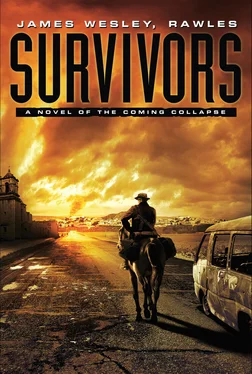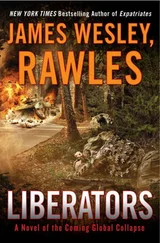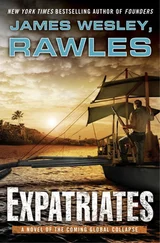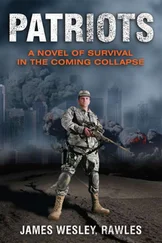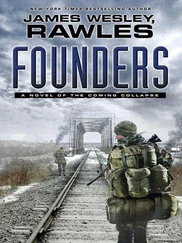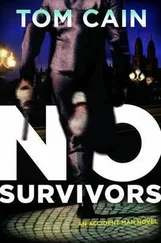Traveling entirely at night would in some ways be safer, but he was afraid that he’d stumble into an ambush, and the mosquitos swarmed by the thousands. It took a heavy application of bug juice to discourage them. Taking pity on Prieto, Laine daubed a bit of insect repellent around the horse’s eyes before sleeping each night. He dreaded leaving the mosquito-netted bivy bag each morning.
Laine close-hobbled Prieto every night and was pleased to see that the horse rarely wandered more than ten yards away from the bivouac bag. Some nights he hardly moved at all. The sound of the horse’s breathing and the regular swishing of his tail were comforting. Andy hoped that he might give him some warning if a man or jaguar approached the camp. Andy even became accustomed to the horse’s daily pattern of urination, defecation, and flatulence. Prieto often showed signs of anxiety for the first hour after Andy settled into the bivy bag each night. Then the horse would let loose a ripping fart, let out a loud breath through its nostrils, and finally stand still, often for the full night. This routine made Andy laugh the first few times that he heard it.
He got into the routine of grooming the horse twice a day, including picking his hooves. The most time-consuming part was searching for and removing ticks. He’d often find a tick on Prieto’s belly or in one of his ears. If the horse shook his head in the middle of the day, Andy would stop, dismount, and check his ears for ticks. This was usually the cause.
Andy’s first attempt at a radio contact from Mexico was two days later, on a Tuesday night. The propagation was so poor that he couldn’t even receive Lars’s previously strong signal. He gave up in disgust.
Prieto tried to linger with his hooves in the water after watering breaks. Andy would have liked to indulge the horse’s preference, but he considered it a security risk. After all, creek and river crossings were high-risk ambush areas.
He also worried about his horse eating noxious weeds and made a point of only stopping and letting Prieto graze in grasses that he recognized. Sometimes the horse would get into a particularly tasty bunch of grass and be reluctant to move on. When that happened, Andy would have to tug quite hard on Prieto’s reins, or if he was dismounted at the time, he’d ball up his fist with his thumb extended and dig his thumb into Prieto’s chest while ordering him backward with the words, “¿Hacia atras!”
Despite Prieto’s few quirky habits, Andy was impressed with his intelligence and instincts. The horse had particularly good sense about snakes. Several times, Andy would be riding alongside the road at a trot and suddenly Prieto would come to a dead stop and lay back his ears. Each time there was a snake just a few paces ahead. If the snake was a fer-de-lance (called a “Tommy Goff” in Belize) or an unidentified snake species, Andy would simply guide the horse in a large circle around to avoid it. But if it was a large rattlesnake, Andy would dismount and tie up Prieto at a safe distance. Then he’d pin the snake’s head down with a branch and decapitate it with his pocketknife. Rattlesnakes were good eating. But Prieto was so frightened of snakes that he’d start to prance in place. Andy learned that the only way that he could get close to Prieto when holding a dead snake was if he first hid it in a sack.
Because of the space constraints of his backpack, Andy could only carry four or five days’ worth of food. By the time he reached the town of Escarcega, he was down to his last few bits of food. He saw a sign on a small masonry building with heavily barred windows: “Monedas Numismatico.”
A sign hanging inside the front window read “Abierto,” showing that the store was open. As Laine dismounted, a boy wearing a large sombrero approached and asked, “¿Le cuido su caballo?” Andy nodded affirmatively. Andy handed the boy Prieto’s reins. Expecting the wait to be twenty minutes, he told the boy, “Aproximadamente veinte minutos.”
Just as at the coin shop in Germany, Andy had to be buzzed in.
The door closed behind him with a loud click. Just inside the door was another door. To his left was a small window where an armed guard sat. The guard glanced through the window at the boy and the horse.
Andy asked, “Can that boy be trusted?”
The guard grunted: “Si, mi chico es de confiar.”
Andy saw a sign above that warned that weapons had to be checked: “Registrar Todas Las Armas Aqui. ?Sin Excepciones!” He let out a sigh, and muttered: “Okay, your house, your rules.” Under the watchful eye of the man, who was armed with an odd three-barreled antique shotgun, Andy made a show of slowly unholstering his SIG, ejecting its magazine, and clearing its chamber, locking the slide to the rear. He passed the pistol butt-first through the window and stuffed the magazine and loose cartridge into his front pocket. Then he handed the man both his CRKT tanto folding pocketknife and his Leatherman tool from his other pocket.
A second buzzer sounded, and Laine entered the main portion of the coin shop. He was surprised to see the shop was owned by a bald, wrinkled man in a wheelchair. The guard with the shotgun pivoted his stool and closely watched all that transpired.
The store was mainly lit by daylight from the windows, supplemented by some strings of white LED lights-the kind that he had previously seen used on Christmas trees. Andy surmised that the lights and door lock were solar-powered. Clever.
He asked the man in the wheelchair, “Do you speak English?”
“Yes, I do. Can I be of help to you?”
“I’d like to trade this Krugerrand for silver coins. I want to trade for whatever you think would be best for me to barter for food in my travel. Do you have some silver pesos, or maybe Onza de Plata coins? The condition is unimportant to me. My only concern is their silver content.” He handed the storekeeper the Krugerrand.
It made Andy smile when he saw the coin dealer repeat the same steps to verify the authenticity of the coin that he had seen demonstrated in Germany. Some tools of the trade, he realized, were universal.
The man looked up with a smile and declared: “I can give you forty-eight silver five-peso coins of before 1958 minting, in trade for this coin. I’m sure that you know, the five-peso coins from this time is 72 percent silver and has .6431 of the troy ounce of silver.”
Andy worked the math in his head. “Hmmm… how about fifty-five of those? That would be a more fair ratio.”
“The best I can do in the trade is fifty-two.”
Andy nodded and said: “That is acceptable to me, but only if you substitute ten one-peso silver coins instead of two of those five-peso coins.”
“Yes, I can include some of the smaller coins, but they will all be the 1957 silver one-peso Juarez. These are a very common minting but not much wear on them.”
“That is fine. We have a deal.” They shook hands.
The coin dealer counted out the coins in piles of five on a blue felt-covered tray. Andy confirmed the count. The coin dealer placed them in a small canvas sack that was printed: “First Community National Bank, Brownsville, Texas.” Seeing that sack made Andy grin. He was now feeling closer to the United States, and feeling anxious.
Andy wished the dealer well as he set aside a handful of one- and five-peso coins from the sack. This handful went loose into his pants pocket while the rest, in the canvas sack, went into his cargo pocket. After retrieving his knives and pistol, Andy reloaded and holstered the SIG. The guard gave Andy a friendly nod.
He was buzzed out the front door and found the boy standing there dutifully, still holding Prieto’s reins. Laine dug in his pocket and pulled out a silver one-peso coin. He handed it to the boy, and said, “Una moneda de plata, para ti. Gracias por su trabajito.”
Читать дальше
